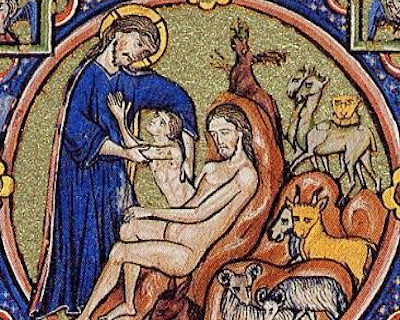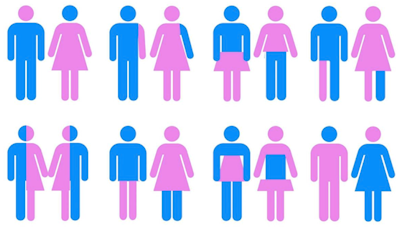Part 1 in a series of reflections.

Michel Foucault is the commonly acknowledged forerunner in the conversation around discourses of sexuality.
In his History of Sexuality Vol. 1 (originally published in French in 1984), Foucault takes to task the "repressive hypothesis." While many believe that we live in a society that thinks of sex as a taboo topic that is not discussed in polite company, Foucault points out that we actually live in a culture in which discourses of sexuality compel individual subjects to speak about their desires and practices.
The result of this dynamic is a fully developed taxonomic system of desires that count as normal and abnormal and an atmosphere in which individuals can be monitored, controlled, isolated, and even cured based on concepts of healthy and pathological sexual desire.
 To make his case, Foucault looks back into the Middle Ages and the rise of the act of confession in Roman Catholicism. He claims that the church was the initial agent in this process, teaching Christians to confess their sins before their priests.
To make his case, Foucault looks back into the Middle Ages and the rise of the act of confession in Roman Catholicism. He claims that the church was the initial agent in this process, teaching Christians to confess their sins before their priests.
Over time, confession focused not only on the concrete acts committed by the confessing individuals, but on the thought life as well, making explicit before the priest what would normally hidden within the individual.
Later, the advent of both modern medicine and psychiatry took advantage of the "confessing animal" created by the church. In the privacy of the examination room or on the analyst's couch, people would confess their innermost thoughts and desires to a medical professional in the search for wellness.
It was in 1870, Foucault tells us, that the modern idea of sexuality was born, as the term homosexual was coined (originally in German) to describe the patient whose affective desires were turned toward others of the person's perceived gender. (I have included "perceived" here because of the complications that will be introduced down the line.)
 Foucault ends his first book on the history of sexuality with a comment on the historical oddity of the rise of the current state of affairs. We have arrived at a state in which the discourse revolves around the idea, "Tell me what you desire and I'll tell you who you are." One day, he suggests, people in a future time might well look back on us and think our discourse quite strange, in much the same way that many people now look on earlier ideas of discerning a person's qualities in relation to the positions of the stars and planets at the person's birth.
Foucault ends his first book on the history of sexuality with a comment on the historical oddity of the rise of the current state of affairs. We have arrived at a state in which the discourse revolves around the idea, "Tell me what you desire and I'll tell you who you are." One day, he suggests, people in a future time might well look back on us and think our discourse quite strange, in much the same way that many people now look on earlier ideas of discerning a person's qualities in relation to the positions of the stars and planets at the person's birth.
As an alternative to the model of desires and sexuality, Foucault suggests that we might better focus on bodies and pleasures. In the second volume in his History, he points to practices in Greco-Roman society that people of leisure and means might pursue in becoming the best human beings they possibly could.
Thus, rather than focusing on sexual desire, nobility following the philosophical works of Seneca might instead focus on dietetics and becoming the pater familias of a well-governed household. By following a strict regimen or ascesis, the nobleman could master his passions and become a more perfect human being.
 The last section of Foucault's second book explores pederasty as practiced in Ancient Greece. For the particular purposes of this series, it is worth noting that no identity was formed out of the same-sex acts involved, as long as certain rules were followed.
The last section of Foucault's second book explores pederasty as practiced in Ancient Greece. For the particular purposes of this series, it is worth noting that no identity was formed out of the same-sex acts involved, as long as certain rules were followed.
A citizen always performed the role of penetrator while the person penetrated was to be younger and of lesser social status. (In this case, minors are not fully citizens yet, fulfilling that condition.)
However, Foucault is interested in the further development of what have come to be known as Platonic relationships. Based on the conversations in Plato's Phaedrus, Foucault notes a movement from the expected sexual relationship between a boy and his sponsor/teacher/mentor, to the relationship in which Plato can look upon and appreciate the beauty of his student interlocutor, but without crossing into a sexual relationship.




